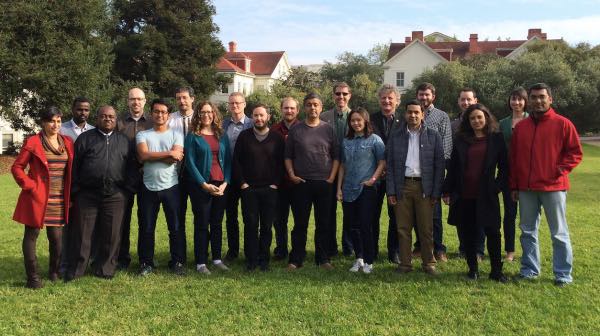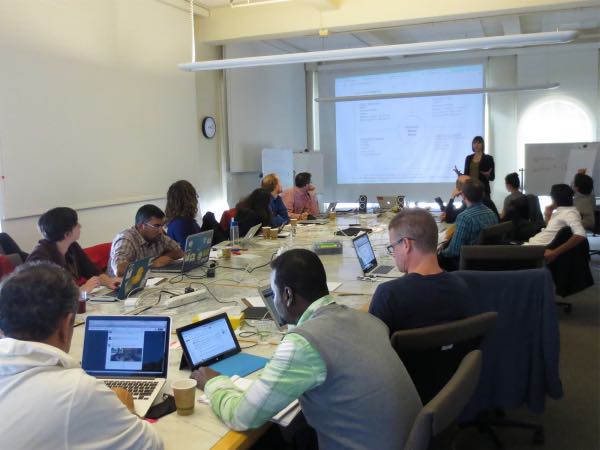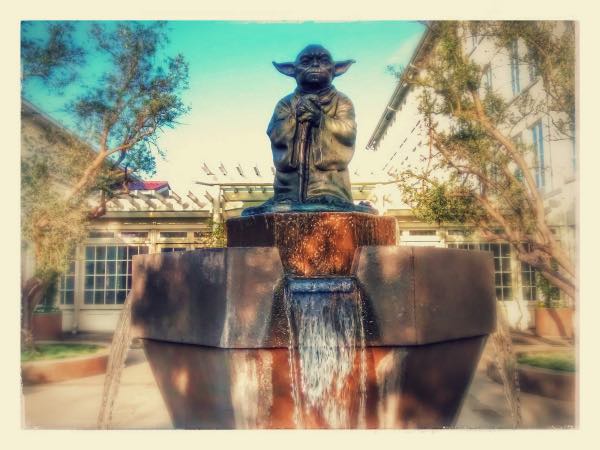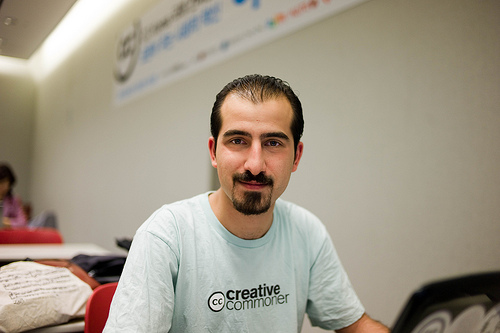Creative Commons and the Open Policy Network hosted the first Institute for Open Leadership meeting in San Francisco 12-16 January 2015. The Institute for Open Leadership (IOL for short) is a training program to identify and cultivate new leaders in open education, science, public policy, research, data and other fields on the values and implementation of openness in licensing, policies and practices. The rationale for the IOL is to educate and empower potential open advocates within existing institutional structures in order to expand and promote the values and practices of the idea that publicly funded resources should be openly licensed.

IOL group shot by Cable Green under CC BY
There was significant interest in the first iteration of the IOL program: we received over 95 applications and selected 14 fellows for the first Institute. The fellows came from around the world (Bangladesh, Barbados, Chile, Colombia, Greece, Nepal, New Zealand, Poland, Portugal, Somalia, United States ), and reflect a wide range of institutions–from community colleges to government sector to public radio.
The central component of the IOL program requires fellows to develop, refine, and implement a capstone open policy project within their home institution. Creative Commons staff and other selected mentors provided guidance throughout this process.
Week’s activities
The week was deliberately structured with the fellows at the center of the conversation, with a specific focus on providing them with the information and tools to develop and successfully implement their open policy project in their institution. We constructed the week’s activities to cover a wide range of topics, including:
- Overview of Creative Commons and open licensing, as this is a key aspect to all open policies.
- Deep dive into open policy, including identifying existing real world examples, sharing lessons learned, discussing the value proposition, sharing typical opposition arguments.
- Discussion of practical development of policy roadmaps and roll-out strategies across different sectors/institutions.
- Campaign planning and advice/best practices about how to communicate with decision makers about open policy.
- Identification of resources in support of open policy development and implementation, including presentations, reports, videos, informational and promotional materials.
- Sharing of best methods for educating and informing decision makers about open policy, including workshops, courses, hackathons.
- Testing fellow’s open policy knowledge and expected challenges through an open policy “shark tank.”
- Hewlett Foundation communication team interviewed multiple IOL fellows for a Hewlett story on the power of CC licensing.
Mentors included Cable Green, Paul Stacey, Timothy Vollmer and Puneet Kishor from Creative Commons and Nicole Allen and Nick Shockey from SPARC. Each of these persons had specific subject-area expertise and acted as a “mentor” for two or more of the fellows. We grouped the fellows based on their project ideas with a mentor in the following categories: Open Educational Resources, Open Access, Open Data, Open GLAM (galleries, libraries, archives, museums), and Open Business Models. During the week, we provided time for fellows to work individually, with other fellows, and with their mentors.

IOL session by txtbks under CC BY
On the final day of the in-person Institute we asked each fellow to report back on their progress from during the week, and asked each to answer common questions, such as talking about their open policy project objectives, planned activities to meet those objectives, identification of challenges they expect to face, partners they plan on working with, and metrics for success.
In addition to the whole group discussions, mentor breakouts, and individual work, we included informational and motivational speakers to talk with the fellows over our lunch breaks. These talks were given by individuals with experience working in open policy across a variety of sectors, including Hal Plotkin (former Senior Policy Advisor within the U.S. Department of Education), Abel Caine (OER Program Specialist at UNESCO), Heather Joseph (Executive Director at SPARC), Laura Manley (Project Manager at Open Data 500) and Romain Lacombe (Plume).
Next steps
With the successful completion of the in-person portion of the IOL, the fellows have now returned to their home countries and will begin the process of implementing their open policies. The mentors are committed to continue working with their respective fellows, including providing advice and assistance. Fellows and mentors will meet to discuss progress over webinars planned for the following months. The goal is for the fellows to have implemented their open policy at the institution within a year. The fellows will be able to share more information about the implementation of their capstone policy projects in the coming months.
We’ve already solicited feedback from fellows and are currently evaluating the activities and structure of the just-completed IOL. There are already several improvements we’d like to see as we begin to develop the second round of the IOL, to be held outside of North America in January 2016. We plan to open the application process for round two in mid-2015. The demand for IOL is large and additional funding is being sought to support additional ones beyond the first two.

Yoda Fountain by Nasir Khan under CC BY-SA
Note: Lucasfilm has offices inside The Presidio, where the IOL took place. Thus, Yoda.
One of the aims of the Institute For Open Leadership is to link participants together into a global network. Participants from this inaugural Institute for Open Leadership, and all future ones, become part of a peer-to-peer network providing support for each other, asking and answering questions, and getting ongoing help with open policy development and implementation. This network helps participants overcome barriers and ensure open policy opportunities come to fruition.






